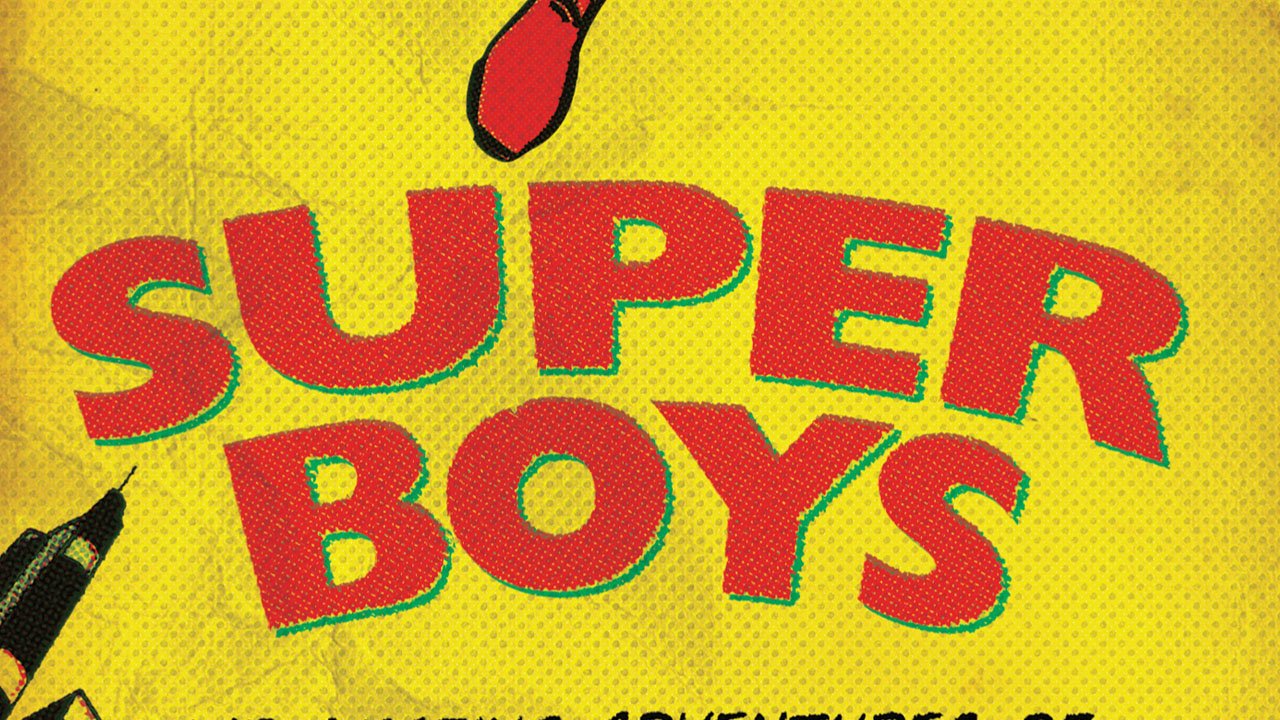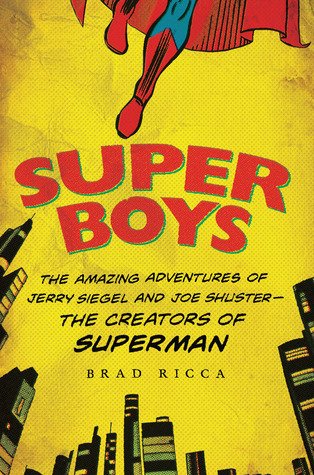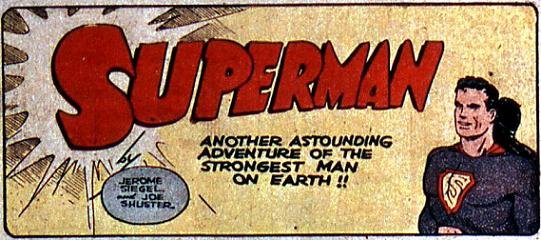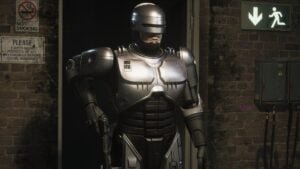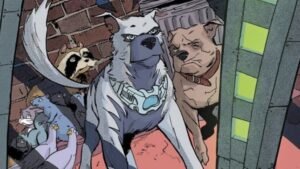Unless you’re over 75 years old, then you have no idea what it’s like to live in a world without Superman. The unstoppable force in flattering spandex created the superhero mythos and made an indelible mark on pop culture that is everlasting. Only Mickey Mouse could possibly be considered more recognizable than the man of steel as a pop culture icon of the 20th century and even then, Supes runs a very close second. Yet, despite the fact that Walt Disney is almost as well known (both in good and bad ways) as his most famous creation, the origin stories of Superman’s creators Jerry Siegel and Joe Shuster remain vaguely mysterious. Hard though it might be to believe, there’s never been a book written about the lives of Siegel and Shuster, but thankfully author Brad Ricca has finally righted that wrong with Super Boys. It’s a painstakingly researched tome of a surprisingly painful story about two kids with a dream treated about as horribly as humanly possible by the business they helped define.
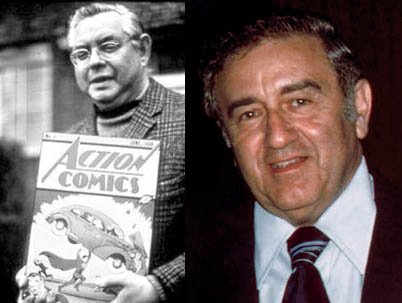
Ricca follows the story of Siegel and Shuster slowly and with great care, peeling back layers of their childhood as the sons of immigrants (Siegel brought up in a family of Lithuanian immigrants in Cleveland and Shuster born in Canada to Russian parents) and their early days cranking out stories for pulp publications. Ideas for their iconic creation began to form in the story “The Reign Of The Super-Man,” but it was the super-speed of gold medal Olympian Jesse Owens who inspired their Superman. The character was gradually nurtured along until the duo (Siegel penning the words, Shuster drawing the images) sold Superman fully formed to Detective Comics, Inc. for a grand total of $130 dollars. It was a bad deal even at the time, but Siegal talked his skeptical partner into accepting, assuming that the inevitable syndication rights for the character would eventually even things out.
From Superman’s car-wielding debut in Action Comics #1, the character hit pop culture hard. Soon their character was selling comics by the boatload and Siegel and Shuster were forced to hire additional writers and artists to help keep pace with their hectic workload. Sadly, that’s pretty much where the positive side of this story stops. There was no mythical syndication deal that got them the money they were due. Despite the fact that Superman not only turned DC into the top comics company on the market, but helped define the entire medium as a superhero delivery system, Siegel and Shuster received a pittance of a salary and no credit as their character took off.
It took a lawsuit against DC for them to even be allowed to try out a prequel story and that ended poorly. They tried to create other characters, but nothing worked (their best idea was Funnyman who used humor to defeat his enemies, but unfortunately the creators weren’t exactly skilled comedy writers). Shuster became so disenchanted by his experience that he became a recluse and was reduced to drawing erotic cartoons for strange magazines. Siegel stayed around comics for a while and created a minor character in the Spectre, but to suggest he was a success in the industry would be a lie. Superman meanwhile became a cultural icon appearing on radio, television, and Broadway while his creators struggled to pay their rent.
“Shuster used to proudly stand outside the Broadway Superman show to see audiences enjoy his creation despite never being able to afford a ticket himself”
Then in the 1970s around when the Superman film was being pulled together, legendary comic book artist Neil Adams took a special interest in the struggles of Siegel and Shuster. He didn’t know them, but had spent years fighting for fair wages and rights for his comic book compatriots and decided it was time to do the same for the unfortunate men who created the superhero industry. Heartbroken by the story that Shuster used to proudly stand outside the Broadway Superman show to see audiences enjoy his creation despite never being able to afford a ticket himself, Adams fought for Siegel and Shuster and got them the credit and at least some of the money they deserved. Adams’ battle didn’t make things right or relaunch the creators’ careers, but at least he ensured that Siegel and Shuster would always be known as the men who created Superman and could expect royalty cheques until the day they died.
The story of Siegel, Shuster, and Superman is almost like folklore amongst comic book fans and a cautionary tale so harsh it has to be true. It’s been told before, but never with the detail that Ricca (a university professor and author) was able to unearth. The Superman tale is of course the centerpiece of the book, but Ricca explores almost every other avenue, digging up bizarre artifacts like Shuster’s award-winning poster design for a high school football championship and the tragic murder of Siegel’s father. Ricca tells the tale with high drama, often imagining the inner thoughts of his subjects, but never stretching credibility. He finds parallels to almost every aspect of Superman within the lives of his creators and while that might sometimes push too far, it’s never less than fascinating. There are times when Ricca’s interest in the minutia of Siegel and Shuster’s lives can get tiresome since they were not hugely interesting people beyond their tie to one of the most important pop culture creations of the 20th Century, but thankfully he never strays too far from the man in the cape.
Brad Ricca’s Super Boys probably wouldn’t appeal much to those who aren’t already invested in the history of comics or Superman in particular. However, for those who are invested in this world (like say anyone who reads Comics Gaming Magazine) it’s an undeniably fascinating account of a sad, yet important story. It’s not an accident that the publishers of the book have gone out of their way through the subtitle and cover design to make Super Boys seem similar to Michael Chabon’s Pultizer Prize-winning novel The Amazing Adventures Of Kavalier & Clay. Clearly Chabon drew a great deal from the lives of Siegel and Shuster when writing his masterpiece (along with the lives of Joe Simon, Jack Kirby, and others). Now, I’m not suggesting that Super Boys is anywhere near the level of Kavalier & Clay as a piece of writing. It’s far too academic for that. However, the book makes for a fascinating companion piece, proving how little twisting is necessary to tell a story of talents pillaged and squashed by the early comic book industry. Brad Ricca’s book is a fitting tribute to the creators of Superman and they have long deserved to have their story told so lovingly and faithfully.
